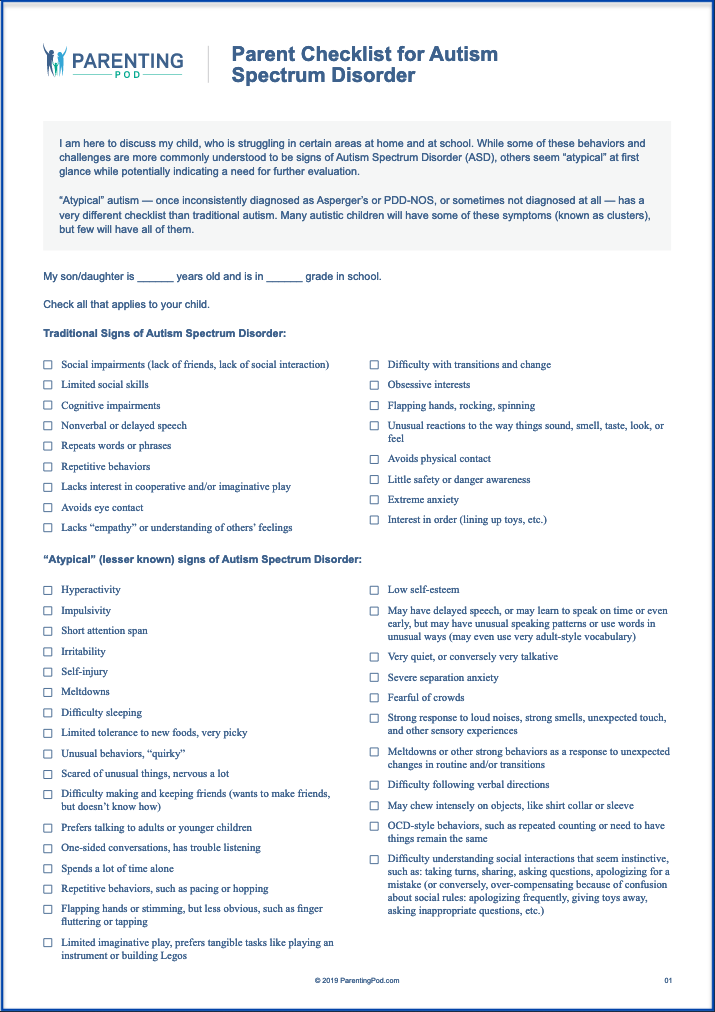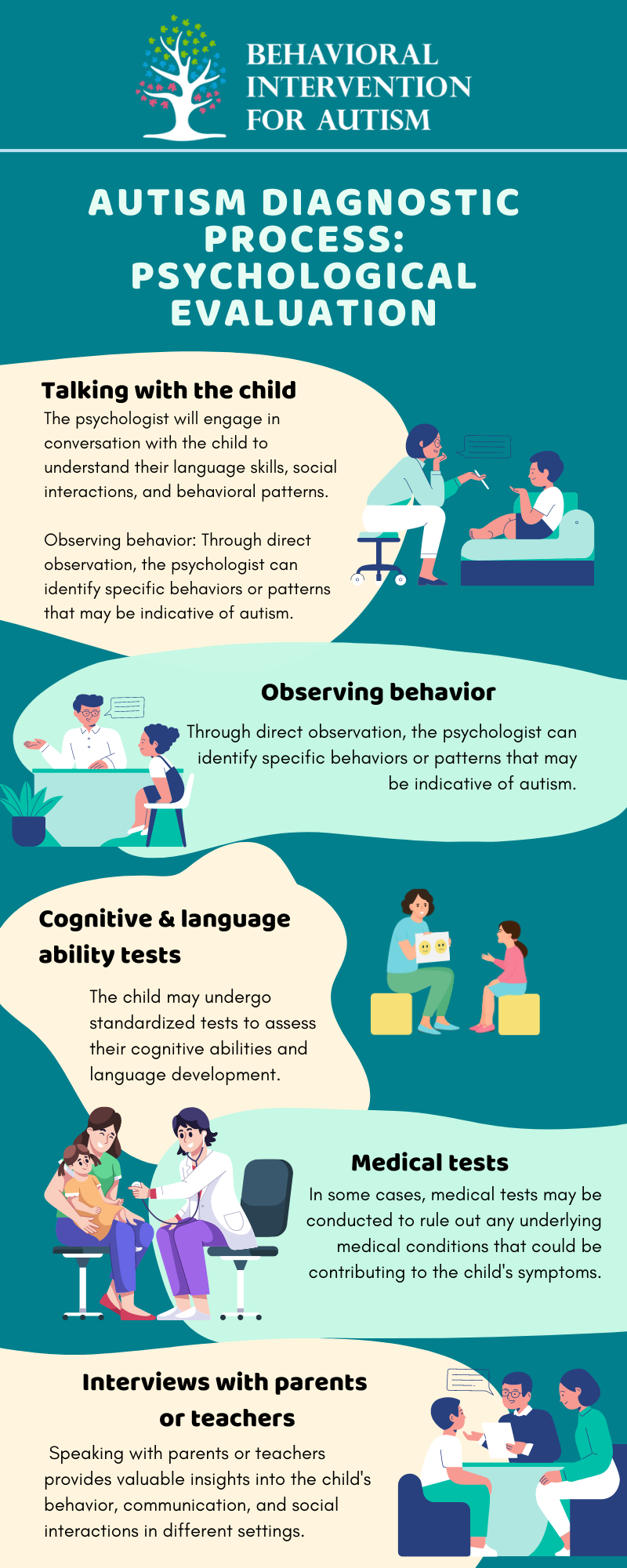Routine strategies that Autism Spectrum Therapies professionals recommend
Routine strategies that Autism Spectrum Therapies professionals recommend
Blog Article
Advertising Inclusivity: Just How to Develop Encouraging Atmospheres for Those With Behavior Autism
Creating helpful environments for individuals with behavior autism is vital for cultivating inclusivity. What particular actions can you take to guarantee these individuals prosper in various settings?
Recognizing Behavioral Autism: Secret Features and Challenges
Recognizing behavior autism includes identifying its key attributes and the obstacles it provides. People with autism often display troubles in social interaction, communication, and repeated actions. You might discover that they have a hard time to translate social signs, which can result in misunderstandings in day-to-day situations. Sensory level of sensitivities are additionally common, making sure atmospheres frustrating.

Sustaining someone with behavior autism indicates being patient and versatile. You'll need to create a setting that decreases anxiety and promotes convenience.
The Role of Compassion in Supporting People With Autism
Empathy plays an important duty in supporting people with autism by assisting you recognize their special perspectives. By exercising active paying attention techniques, you can develop emotional connections that cultivate depend on and interaction - Autism Therapist. This understanding not only boosts your relationship yet also produces an extra helpful setting for them
Understanding Special Viewpoints
When you think about the one-of-a-kind perspectives of people with autism, it comes to be clear how crucial compassion is in offering efficient assistance. Everyone's experience is shaped by different sensory level of sensitivities, interaction styles, and emotional actions. By tipping into their shoes, you can start to recognize their globe. This understanding helps you respond a lot more attentively to their needs and challenges. Recognizing their strengths and struggles fosters a much deeper connection, developing depend on and motivating open interaction. Your capability to empathize allows you to develop an atmosphere where they really feel secure, valued, and recognized. This helpful ambience empowers people with autism to express themselves, eventually boosting their wellness and growth. Empathy is not just a skill; it's an important foundation for meaningful connections.

Active Paying Attention Methods
Active listening strategies play a vital duty in supporting people with autism, as they foster a deeper link and understanding. Reword what they say to verify your understanding, and ask open-ended concerns to encourage further expression. By practicing these strategies, you create a safe area where people really feel heard and respected, eventually boosting their interaction and emotional well-being.
Building Emotional Connections
Developing an encouraging environment through active paying attention normally leads to developing psychological links with people on the autism range. When you truly involve, you're not just hearing their words; you're understanding their feelings. This empathy promotes depend on, permitting them to share themselves honestly. Usage nonverbal signs, like eye contact and nodding, to show you exist and invested in their experiences.

Reliable Interaction Methods for Inclusivity
Efficient interaction approaches play a crucial role in cultivating inclusivity for people with behavioral autism. Beginning by using clear, straightforward language that's simple to understand.
Nonverbal hints are just as essential. Focus on your body language, facial expressions, and intonation, as these can convey greater than words. Keep eye contact and use motions to boost understanding.
Furthermore, hold your horses and give individuals time to procedure details. Encourage them to reveal their ideas and sensations, showing that their input is valued.
Energetic listening is essential; repeat or paraphrase what they've stated to verify understanding. Adapt your communication techniques based on private choices, whether it's with aesthetic help, composed guidelines, or various other devices. This individual touch reinforces inclusion and helps build meaningful connections.
Tailoring Support Solutions in Educational Settings
In academic setups, you'll wish to concentrate on Individualized Education and learning Program (IEPs) additional resources that satisfy each pupil's one-of-a-kind demands. Developing a sensory-friendly class layout can also enhance learning by advertising and lessening diversions convenience. With each other, these methods can cultivate a setting where students with autism grow.
Embellished Education And Learning Strategies
While steering through the intricacies of autism in educational settings, Individualized Education and learning Plans (IEPs) play an essential function in customizing support systems to satisfy each pupil's distinct demands. It's vital to work together with educators, specialists, and your kid to develop an extensive strategy. Remember, an efficient IEP is not simply a document; it's a living tool that adjusts to your youngster's evolving requirements, guaranteeing they grow in their educational atmosphere.
Sensory-Friendly Class Layout
Producing a sensory-friendly classroom can significantly enhance the learning experience for pupils with autism. Use calming shades on walls and decor to develop a calming environment. By making these changes, you'll create a setting where trainees with autism really feel much more sustained and involved in their discovering trip.
Developing Inclusive Workplaces for Individuals With Autism
To cultivate an absolutely inclusive work environment for people with autism, employers should recognize the special toughness and challenges these people bring. Begin by promoting clear communication and offering thorough task descriptions that describe assumptions. This assists individuals recognize their functions better and decreases anxiousness.
Consider carrying out flexible work arrangements, such as remote work or adjusted hours, to fit various personal choices and sensory needs. Training your team on autism awareness is necessary; it can enhance empathy and advertise a supportive environment.
Developing quiet areas where staff members can reenergize during stressful moments can likewise make a substantial difference. Motivate the usage of assistive modern technologies that help improve and improve jobs performance.
Ultimately, valuing diversity will certainly not just profit people with autism but will likewise enhance the whole group, bring about a more dynamic and ingenious work environment. Welcome these strategies to Visit Your URL cultivate an environment where everybody can prosper.
Motivating Social Communication and Area Involvement
Urging social interaction and community engagement is important for individuals with autism, as it assists develop confidence and promotes significant partnerships. To develop an encouraging environment, begin by providing chances for people to get in touch with others in a comfy setting. Organize team tasks that deal with various passions, such as art courses, sporting activities, or social work tasks.
You can additionally facilitate smaller, structured gatherings where everybody can share their experiences and thoughts. Urge open interaction by modeling considerate listening and empathy. Establishing peer mentorship programs can assist produce bonds and provide support.
Involve households and regional organizations to expand the assistance network and promote comprehensive occasions. Remember, the key is to create safe spaces where individuals with autism really feel valued and recognized. By fostering these connections, you'll help them prosper socially and develop a sense of belonging within the neighborhood.
Resources and Tools for Structure Encouraging Environments
While building helpful atmospheres for individuals with autism may appear tough, numerous sources and devices can make the process less complicated and extra reliable. First, think about using visual assistances like routines or social stories to help individuals understand their day-to-day regimens and social scenarios. Applications developed for interaction, such as AAC (Different and augmentative Interaction) tools, can also improve interaction.
In addition, training programs for personnel and volunteers on autism awareness can promote compassion and understanding in go to my site your neighborhood. Consider local organizations that use resources or workshops customized for supporting individuals with autism.
Developing sensory-friendly spaces with calming elements-- like soft lights and quiet locations-- can profit those who may become overloaded. Lastly, developing links with regional support system can supply recurring support and responses, helping you fine-tune your technique and warranty inclusivity for all.
Regularly Asked Inquiries
How Can I Educate Others About Behavioral Autism Properly?
To educate others about behavior autism efficiently, share individual stories, give clear sources, and encourage seminars - Autism Therapist. Use relatable examples and highlight the importance of comprehending various viewpoints to foster compassion and understanding
What Prevail Misunderstandings About Autism That Need Addressing?
You could believe autism only influences communication skills, but that's simply one aspect. Numerous believe it's entirely a childhood condition, when actually, it spans throughout all ages and manifests differently for every person.
Just How Can I Advocate for Autism Understanding in My Neighborhood?
You can support for autism recognition by organizing neighborhood events, sharing interesting sources, and collaborating with regional companies. Usage social media sites to get the word out, and encourage open discussions to foster understanding and acceptance.
Exist Particular Sensory-Friendly Spaces for People With Autism?
Yes, several areas offer sensory-friendly spaces, like silent rooms in libraries, specialized play locations, or assigned hours at museums. You can explore neighborhood resources and advocate for even more comprehensive rooms to sustain people needing them.
What Role Do Family Members Members Play in Sustaining People With Autism?
Family participants play an essential duty in supporting people with autism. You can offer persistence, motivation, and understanding. By proactively participating in their lives, you assist develop confidence and foster freedom, developing a nurturing atmosphere.
Creating helpful settings for people with behavior autism is vital for fostering inclusivity.Developing a helpful environment with active paying attention naturally leads to constructing psychological connections with people on the autism range. Producing Inclusive Workplaces for People With Autism.
To foster an absolutely inclusive work environment for individuals with autism, companies should identify the unique staminas and difficulties these people bring. Remember, the key is to create safe areas where people with autism really feel valued and recognized.
Report this page